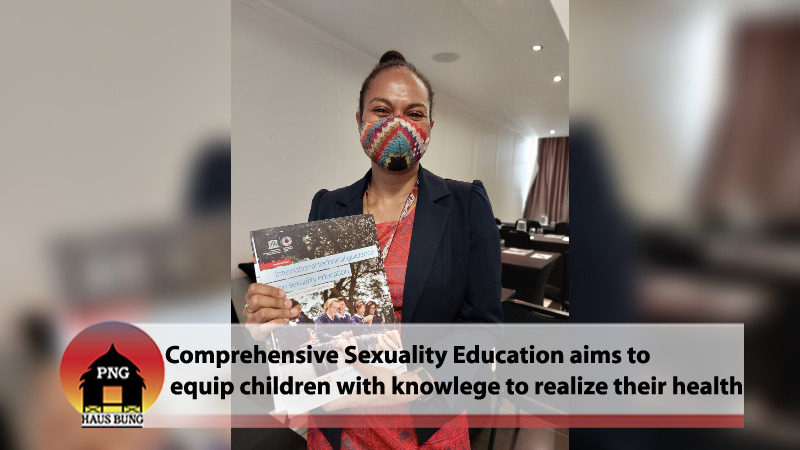“Students here need help in making informed decisions when it comes to their sexual health,” shares PNG Family Health Association’s (FHA) Michelle Tovebae.
FHA is one of several organisations rolling out Comprehensive Sexuality Education (CSE) in Papua New Guinea. Michelle joined representatives from the National Department of Education and ChildFund for a learning session on CSE for key partners as part of UNFPA’s work in ending gender-based violence.
CSE is a curriculum that covers healthy and respectful relationships, rights and values, sexual and reproductive health, pregnancy, and parenting.
UNFPA, together with Family Planning NSW, delivered the two-day learning sessions with 16 attendees from the National Department of Education, National Department of Health, and civil society organisations. These groups include members of the CSE steering committee, a group intended to coordinate the national roll out of CSE in Papua New Guinea.
The goal is to extend CSE to both in- and out-of-school youths, contributing to reduced incidence of adolescent pregnancy, STIs, and HIV. Addressing stigma on sexuality education remains a critical challenge.
“Addressing sensitive issues in PNG is difficult with our culture,” said ChildFund project officer McCleen Pikacha. “Through CSE we hope to include better teaching approaches and open discussions in classrooms.”
“I’m looking forward to teaching my peer educators about what I’ve learned from this training,” said Michelle. “With this they can be well equipped to teach other youths in the communities.”
The national CSE roll out is part of implementing the Adolescent Health Policy. This current training is funded through the Spotlight Initiative to end violence against women and girls. Effective implementation of the Adolescent Health Policy contributes to preventing intimate partner violence.
About Comprehensive Sexuality Education
Comprehensive sexuality education (CSE), also known as ‘Family Life Education’, is a curriculum-based process of teaching and learning about the cognitive, emotional, physical, and social aspects of sexuality.
It aims to equip children and young people with knowledge, skills, attitudes, and values that will empower them to: realize their health, well-being, and dignity; develop respectful social and sexual relationships; consider how their choices affect their own well-being and that of others; and understand and ensure the protection of their rights throughout their lives.

